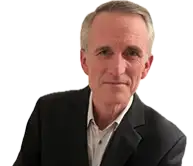A Death Café can sound fairly morbid. It seems like an awful idea for anyone who isn’t dying. However, these open meetings are where people can meet up and discuss death related topics. The organisers keep conversation on track, ensure everyone is heard and keep account of time.
The main aim is to increase awareness of death and help those who attend to make the most of their life. They are called Death Cafés because simply they bring people together to discuss death.
Key takeaways
- Death cafés were formed in the UK in 2011 by Jon Underwood.
- They are a non-profit meeting place for people to talk about death, bereavement and grief.
- Although they are called a café , they can be held in someone’s home. They do not have to be held in a café.
- Death Cafés allow people to talk openly in an unbiased manner.
Table of contents
Death is not something we talk about openly. There are many ways to say “died” without actually saying “die.” For example, we use phrases like “passed away”.
Death Cafés are non-profit and were founded in London in 2011. They are termed as a social franchise, and over 13,770 Death Cafés in over 81 countries have been held since 2011. They promote open discussion about death/dying through social gatherings, with no specific agenda. People drink tea/coffee, eat cakes and engage in conversations. There have been over 2740 Death Cafés in the UK. Some meetings are held over the internet with zoom calls, rather than a physical location.
Death Cafés are not grief support groups. Instead, their conversations focus on death related matters, including possible current and past losses, death, an individual’s thoughts, funerals, etc.

Usually lasting for one or two hours, these meet-ups can be at coffee shops, public houses, private homes, chapels etc.
It isn’t unusual today for someone to live past the age of mid-30s or even 40s without having experienced a close family member’s death due to advancements in medical technology. Informal conversation can be helpful for us when figuring out our deaths.
Death Cafés definition
A Death Café brings together people who don’t know each other but share an interest in discussing death in a non-morbid way. The aim is to raise death awareness to help individuals be more aware of their time here on Earth.
They are an event where people discuss their own experiences and thoughts about death without any predetermined ideas or goals. It is simply an environment where people discuss death.
In 2011 Jon Underwood created Death Café to give people a space to discuss their feelings related to dying. He read an article written by Bernard Crettaz, who is based in Switzerland and founded Café Mortel in 2004. Bernard laid down an open space allowing people to share their stories and thoughts about death without any expectations or judgments.
Both were interested in discussing death and encouraging people to think about their mortality. Jon started the Death Café movement having been inspired by Bernard’s similar work.
For many, death is not talked about openly. Bernard and Jon aimed to create an environment where people could meet and discuss death openly.

People often do not talk about death until they’re faced with imminent death or when someone close to them dies. A Death Café helps people who want to talk about death without feeling judged.
Death Cafés do not need to be held at a traditional café; they could happen anywhere from someone’s house to a local community centre. A Death Café requires nothing but a place, and an organiser or two. The cakes, biscuits, tea and coffee, make an excellent addition.
Death Cafés always occur:
- On a non-profit-making basis
- In an easy-to-access, private & respectful place
- With no intent of directing attendants to any course of action, conclusion, or product.
- In company normally with cake and drinks
Death Cafés are social franchises, individuals who enrol set up their own Death Café name can post occasions, and address themselves as affiliates.
Death Café movement history
In 2010, Jon Underwood wanted to create a project called “Death Series,” where he would talk about death.
In November of 2010, Jon read an article by Bernard Crettaz.
After reading Bernard’s article, Jon quickly realised he could create something similar using Bernard’s ideas. Death Café was then created in 2011.
The first Death Café took place in Hackney in September 2011. Nowadays, they occur at different locations, and have been held at the Royal Festival hall & yurts as well as people’s homes.
They have become famous throughout Europe, North America, Australia and many other countries. Many people want to discuss death, and some are passionate about arranging their own Death Cafés.
What is involved?

At a Death Café, usually, strangers come together to share cakes or drinks and talk about death. It’s just that easy!
There isn’t an exact format for these sessions, but they usually involve talking about death without any particular theme or objective.
It’s not meant for grieving; instead, it’s a place where anyone interested in death/ dying matters can discuss these topics together.
People who want to talk about death/dying may bring up these subjects at their own pace during the conversation. However, no one is forced to speak if they feel uncomfortable doing so.

While the idea of talking about death might sound morbid to other people, death is just another natural event in our lives as much as birth or marriage. It’s an active community with some members writing blog posts and sessions to share their knowledge and experience.
Unfortunately, Jon Underwood passed away unexpectedly on 27 June 2017. He has helped many people to meet repeatedly, and set aside some time to discuss death/dying.
Death Cafés can be a first step toward making discussions around death/dying less taboo. They’re beneficial because they allow people who might otherwise be too afraid to discuss these topics to get comfortable enough to talk openly about them. As per Jon’s requests, the Death Café movement has continued under the main leadership of Jools Barksy (Jon’s sister) and Susan Barksy Reid (Jon’s mother).
Why discuss death?
Death Cafés allow people to discuss their thoughts and feelings about death in an unbiased environment.
Talking about death is problematic because it makes people feel uncomfortable. However, gathering courage and discussing this topic is beneficial it can:
- Minimise death fear & anxiety
- Prepare for end of life
- Discuss funerals
- Allow individuals to interact and create friends.
- Encourage an in-depth understanding of a pivotal subject

Common death related questions
There is no subject too trivial for discussion. You might feel a bit awkward at first, but that’s not wrong.
Asking questions and providing prompts increases engagement and deepens understanding.
- What if I fear dying?
- How can I prepare myself logistically before my dying day?
- Should I choose cremation or burial?
- How can I engage my family members and friends in a death-topic discussion?
- Is my current life fulfilling?
- What service/celebration can I choose after I die?
Finding Death Cafés near me
You can find death cafes close to you at DeathCafé.com & MeetUp.com. Each site features Death Café occasions across different locations. You could start your own Death Café if there is not one near where you live.

Can Death Cafés help you?
It’s important to talk about death because it’s an inevitable part of life. If we gather together and talk about it openly, perhaps we could help break down some barriers and start a conversation around something that has been thought of as taboo for so long. If we think about death, maybe we could live our lives differently. Thinking about death helps us prepare ourselves for our inevitable end, and talking about dying teaches us not to worry so much about things we often cannot control.
Other organisations
As can be seen from the organisations below there are other similar group meetings where people are encouraged to talk about dying, death and funerals.
The charity, Hospice UK’S ‘Dying Matters’ campaign which was formed in 2009 is aiming to create an open-minded culture in which people can feel free to talk about dying, death and the effects of bereavement. Those who join receive emails regarding information on end of life care and associated events. To date membership is around 32,000.
Interestingly also in 2011 which was the same year as Death Café was formed, Caitlin Doughty from the USA formed ‘The Order of the Good Death’. She also brought more attention and popularised the term ‘Death-positive movement’ both of which encourages people to talk openly about dying, death and dead bodies. Caitlin is also the author of three best selling death related books, and owner of Clarity Funeral Home located in Los Angeles.
Caitlin and Meghan Rosenbloom formed ‘Death Salon’ in 2013. This is the events side of ‘The Order of the Good Death’. As the name suggests this is where people discuss dying, death, funerals etc. These events are both for business and the public.
‘Death over Dinner’ which was started by USA author and restaurateur Michael Hebb and Angel Grant is a set-up whereby people are encouraged to have dinner parties and talk about death. This has been a very successful project, on the opening night in 2013 in excess of 500 dinners across 20 countries were tracked. This has led to over 100,000 death dinners since then.
Conclusion
Every Death Café is different; they vary so much due to who attends them and their topics. These places create an environment where people feel free to discuss anything they wish without having their opinions questioned by others. It’s not as intimidating as some may think to discuss death with strangers. Death Cafés bring all these individuals together to share their views.
We gain knowledge when we talk about something difficult. Talking about passing away makes us feel less afraid of dying.
Acceptance of death may be depressing at first, but it also helps remind us of the living sweetness. Thinking about death makes us realise that life is temporary and, therefore, we should use every moment wisely.



